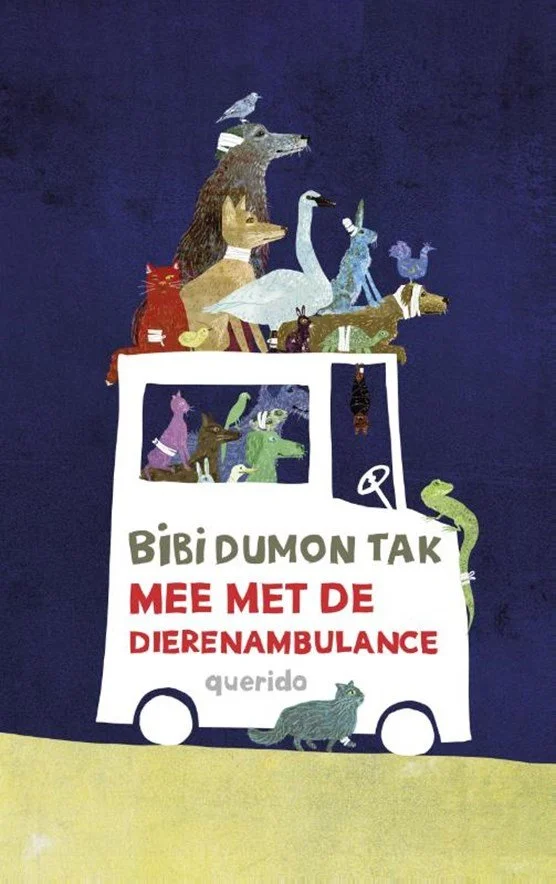Reading more daringly
I love reading. I have ever since I was a child. I remember reading Kruistocht in Spijkerbroek from Thea Beckman ('Crusade in Jeans'), feeling I was there, travelling back in time. And maybe even more mind-blowing, her books on Thule: Kinderen van moeder Aarde ('Children of Mother Earth'). These brought you into the future. Not only creating a captivating story but also a cultural critique, asking big questions, like: why do men rule the world? And: nature as a whole will likely adapt to whatever we do - but will we, as a species, survive? It made me fall in love with books even more.
My daughter tends to read a lot as well. (I swear -no, I hope- I did not create any pressure there). One of her current favourites is Bibi Dumon Tak's (her name alone reads like a fairy tale): 'Mee met de Dierenambulance' (about Animal Rescue).
And so this piece (in NRC) caught my attention (summarizing a lecture with which Dumon Tak wrapped up a collaboration with the University of Leiden):
Bibi Dumon Tak writes (in Dutch):
Ontdekken dat je kunt lezen, van het ene op het andere moment, gaf mij dezelfde sensatie als de dag waarop ik leerde fietsen. Met de fiets zou ik kunnen wegrijden, met een boek zou ik kunnen wegdromen. Wat een mogelijkheden waren erbij gekomen om te ontsnappen aan de plaats waar ik me op dat moment bevond.
Bibi Dumon Tak
She describes how learning to read is as sensational as learning to ride a bike: there are now so many new places you can go, so many new ways to 'escape'.
Dumon Tak then continues to critique the methods currently used in The Netherlands to learn children to read in 'a safe way' (The 'AVI' system). Is there an unsafe way, she wonders? Why wouldn't children simply be encouraged to read a lot, tempted to disappear in stories, instead of being led through this exciting world with too many safety measures: helmets, soft undergrounds and a protective suit?
An example she gives: according to the AVI method, children should not be confronted with words they are not 'ready for'. In a M3-level text, words with multiple syllables are forbidden. So if you read M3 more is too much. Leading to, in Dumon Tak's eyes, boring, clumsy and oversimplified texts.
Now let's be clear, I am very sure any experts who worked on AVI are amazing people, and since I am not an expert in education nor in the science of child development - I do not feel in the position to judge any reading method.
What I do know, is that Dumon Tak's critique sounds painfully familiar, in the context of system change. You will hear this in education but also for example in health: the need to measure, standardise and control becoming so central that it almost seems a purpose in and of itself. Overshooting a lot of the juicy, good stuff: the human desire to connect, learn, enjoy and explore.
And, as we often see in our systemic issues: the power shifting to a couple of big commercial players, in this case to a couple of publisher firms, encouraged to keep defining new methods, funded by our educational institutions.
What is the alternative? Dumon Tak mentions the books of Bob Popcorn as an example, a series that centers joy, wanting to read. Being seduced to read. Becoming a happy reader.
She suggests we should rid ourselves of this 'dictatorial' reading approach: no more codes, stamps, exercises. To be more daring, more adventurous, and escape. Into different worlds, into the past, the present, and a (better) future.
In Dutch, unfortunately only for members
